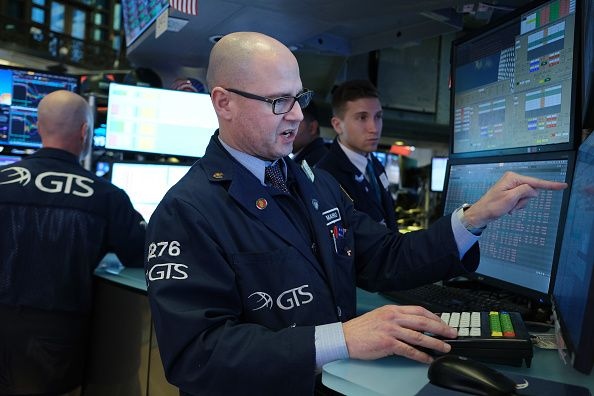Feb 26, 2020
Fear seen all over Canadian markets hit by virus, economy chill
, Bloomberg News
Coronavirus hit on the energy sector isn't helping Canada's economy: AGF CEO
Canada’s stock market rally has cracked. Volatility has spiked. And investors have been piling into government bonds, pushing yields to near-record lows.
Anxiety is everywhere for investors in the nation’s markets as the coronavirus outbreak and protests that hobbled rail traffic are magnifying concerns about an economic slowdown.
The S&P/TSX Composite Index lost this year’s gain in just four days of trading -- it is down 0.1 per cent in 2020. It had been up 5.2 per cent as of last Thursday’s close.
A technical indicator that measures buying strength versus selling strength -- known as the Bloomberg Fear and Greed indicator -- slumped to the lowest level since the global market rout in the fourth quarter of 2018.
The coronavirus continued to spread across the world as new clusters of cases have emerged in Italy, Iran and South Korea. Ontario’s Chief Medical Officer of Health David Williams confirmed Wednesday a new positive case of the virus in Toronto, taking the number of infections in Canada to more than 10.
Meanwhile, environmental and indigenous-rights activists have obstructed rail lines across Canada for weeks to protest the construction of TC Energy Corp.’s CUS$6.6 billion (US$5 billion) Coastal GasLink pipeline in British Columbia. That has paralyzed parts of the nation’s rail network in recent weeks, bringing grain movement to a near halt.
Now, analysts are expecting profits to slow for the first quarter, according to data compiled by Bloomberg. Almost a quarter of companies that have reported earnings results since Jan. 17 have cited or answered questions related to the virus or rail blockades and its potential impact on profits, Brian Belski, chief investment strategist at Bank of Montreal, said in a report published Wednesday.
Belski isn’t so worried. “While the coronavirus Covid-19 and rail blockades suggest a double hit to the Canadian supply chain, our work shows the overall impact is likely to be relatively minor.” Supply disruptions will present near-term earnings risks, but profit growth will rebound down the road, he added.
Wild Ride
Market turbulence has surged. At one point this week, volatility on the S&P/TSX soared to its highest level since Aug. 26. For the loonie, three-month implied volatility rose to the highest in almost four months as virus fears sparked demand to hedge the Canadian dollar’s weakness.
The loonie may continue to fall. Simon Harvey, a London-based market analyst at Monex Europe Ltd. and Monex Canada Inc., said that “currency markets may be lining up for another serving of a Poloz special –- talking the currency down in order to do the bank’s bidding in the short-run, thus buffering the Canadian economy from slowing global growth headwinds.”
Goldman Sachs Group Inc. recommends going long on the Japanese yen against the Canadian dollar as currency markets enter a “longer period of virus-related uncertainty,” strategist Zach Pandl said in a note to clients Wednesday.
His view is based on the expectation that risk aversion will remain high, “dollar bloc” currencies will underperform, and that the Bank of Canada could turn more dovish. Markets are pricing in at least two interest rate cuts from the central bank this year.
In fixed income, plunging bond yields boosted gains on government debt while spreads in the corporate bond market increased to their widest since mid-December. That’s another indicator of economic concern.
An aggregate index of Canadian bonds in U.S. dollars returned 1.4 per cent year to date, compared with a 2.9 per cent increase for a comparable U.S. benchmark, according to Bloomberg Barclays indexes. Yet investors snapped up a Canadian issue by Hydro One Ltd. on Wednesday, even as global credit markets grind to a virtual standstill amid the coronavirus outbreak.
For Baskin Wealth Management Chief Investment Officer Barry Schwartz, long-term fundamentals are what count. “My advice to investors is the following. If you are a long term investor, you should do nothing or use the opportunity to improve your portfolio,” he said in a tweet Wednesday.
WEIGH IN

What’s been your stock strategy this week?







